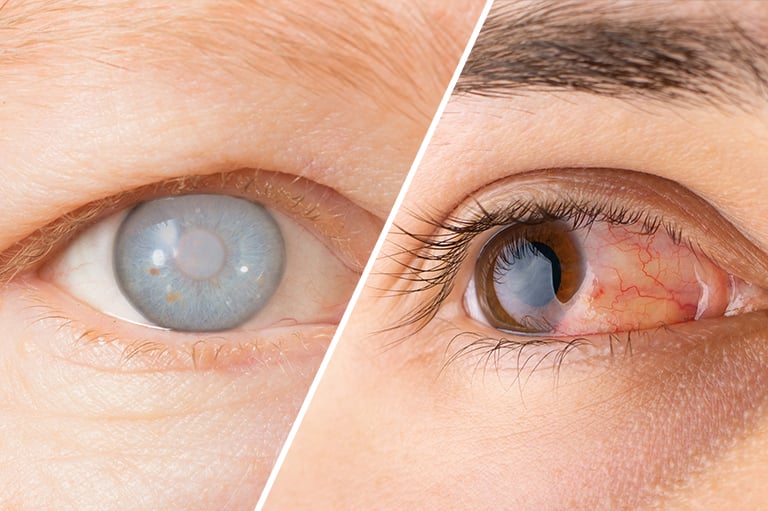
Cataract surgery is one of the safest and most successful procedures in modern medicine, offering millions of people a clearer, brighter view of life.
Yet, one common question patients at DRHC Dubai often ask is:
"Can cataracts come back after surgery?"
Let’s set the record straight by separating myths from facts — so you can move forward with confidence if you're considering or recovering from cataract surgery.
Myth #1: Cataracts Can Grow Back After Surgery
Fact:
Once a cataract is removed, it cannot come back.
During cataract surgery, the cloudy natural lens is permanently removed and replaced with a clear artificial intraocular lens (IOL). Since the cataract was part of your natural lens, and that lens is gone, a true cataract cannot return.
Myth #2: If Vision Becomes Cloudy After Surgery, the Cataract Has Returned
Fact:
Some patients experience cloudy vision months or years after cataract surgery.
This is not the cataract coming back — it's something called Posterior Capsule Opacification (PCO), often referred to as a "secondary cataract."
During cataract surgery, part of the thin, clear capsule that holds your lens is left intact to support the new IOL. Over time, this capsule can become cloudy, affecting your vision similarly to the original cataract.
The good news?
PCO is common, painless, and easily treatable with a quick laser procedure called YAG laser capsulotomy, which restores clear vision in minutes — with no need for another invasive surgery.
Myth #3: Cataract Surgery Results Don't Last Long
Fact:
For the vast majority of patients, cataract surgery offers permanent improvement in vision.
Once the cataract is removed and the artificial lens is implanted, it remains clear and stable for life.
The only exception is if PCO develops — and even then, after a simple laser treatment, patients typically enjoy lasting clarity.
Our Related Blogs
- What is a Cataract and How Does it Affect Your Vision?
- Early Signs of Cataracts You Shouldn’t Ignore
- Cataract vs. Other Eye Conditions: What’s the Difference?
- Understanding the Stages of Cataract Progression
- Cataracts or Astigmatism? Understanding Vision Changes as You Age
- Are You Too Young for Cataracts? Cataracts in Younger Adults
- Why Cataracts Are More Common in Sunny Climates Like Dubai
Why Some People Confuse PCO with Cataract Recurrence
It’s understandable!
Symptoms of Posterior Capsule Opacification can mimic cataract symptoms, such as:
- Blurry or hazy vision
- Glare or halos around lights
- Difficulty reading or seeing clearly at night
That’s why it’s important to schedule regular follow-ups after your cataract surgery, so your ophthalmologist can quickly diagnose and treat any changes to your vision.
At DRHC Dubai, we closely monitor your post-surgery recovery to ensure long-term success and vision satisfaction.
How to Protect Your Vision After Cataract Surgery
After your cataract surgery, simple habits can help you maintain the best vision possible:
- Wear UV-protective sunglasses to shield your eyes from sun damage.
- Follow your doctor’s aftercare instructions carefully.
- Attend all scheduled follow-up visits.
- Stay alert to any changes in your vision and report them early.
Remember: most people enjoy dramatically better vision for life after cataract surgery!
Final Thoughts
Cataracts cannot come back after surgery — that’s a fact.
If you develop cloudy vision after your procedure, it’s likely due to Posterior Capsule Opacification, which is easily treatable.
At DRHC Dubai, our expert eye surgeons are committed to delivering exceptional outcomes for cataract surgery and beyond. We stay with you through every step of your journey — from your first consultation to long-term post-surgery care — ensuring your vision stays as clear and vibrant as possible.
See the world more clearly — trust your eyes to DRHC Dubai.
Call us at +97142798200 or visit www.drhc.ae to book your appointment.









Leave a comment